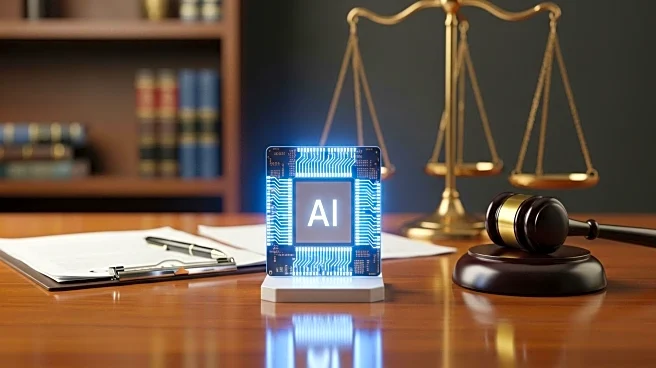What's Happening?
Relativity, a prominent player in the legal technology sector, has announced significant updates to its AI-enabled product line at the recent RelativityFest conference in Chicago. The company is transitioning its aiR for Review and aiR for Privilege tools from limited availability to standard offerings within RelativityOne, marking a shift from speculative AI-assisted eDiscovery tools to established industry standards. Additionally, aiR for Case Strategy, which has been in Limited General Availability since March, is expected to follow suit. These tools have already been utilized by over 200 customers across 1,500 workspaces, demonstrating their effectiveness in streamlining legal processes. The announcement signals Relativity's confidence in the quality and reliability of these AI tools, which have been rigorously tested to meet internal benchmarks.
Why It's Important?
The expansion of Relativity's AI tools to standard offerings is poised to significantly impact the legal industry by enhancing efficiency and reducing costs. For firms that have been cautious about adopting new AI technologies, this development represents a milestone, as it indicates the tools have matured and are ready for widespread use. The aiR for Review tool, for instance, has demonstrated the ability to reduce review time by 85% and save over $70,000 in costs, as reported by Purpose Legal. This shift could lead to broader adoption of AI in legal practices, potentially transforming how legal professionals manage case reviews and strategy development. The move also underscores Relativity's commitment to innovation and its role in driving technological advancements in legal services.
What's Next?
Relativity's announcement includes the introduction of aiR Assist, a natural language search application designed to enhance early-stage case assessment. This tool aims to help litigators quickly identify key elements of a case, thereby improving preparation for interviews and depositions. The company also unveiled Rel Labs, an initiative to foster investment and innovation in legal technology. Through Rel Labs, Relativity plans to explore and invest in emerging technologies to maintain its competitive edge. As these tools become more integrated into legal workflows, firms may need to adapt their practices to leverage the efficiencies offered by AI, potentially leading to shifts in staffing and resource allocation.
Beyond the Headlines
The broader implications of Relativity's AI expansion extend beyond immediate cost savings and efficiency gains. As AI tools become more prevalent in legal practices, ethical considerations regarding data privacy and the role of human judgment in legal decision-making may arise. The integration of AI in legal processes could also influence the training and development of legal professionals, necessitating new skills and competencies. Furthermore, the success of Relativity's AI tools could encourage other sectors to explore similar technological advancements, potentially leading to cross-industry innovations.










